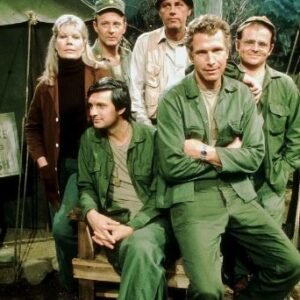The U.S. Fish and Wildlife Service said the cause behind the pink hue was due to halobacteria found in waters with high salinity
In October, Diane Hight finished her 56th trip with her non-profit Forever Young Veterans, an organization that grants wishes, and what she calls Trips of Honor, for veterans over 65. It was to Washington, D.C., where she took a group of veterans to visit the war memorials in the capital, the Marine Corps, Army, and Navy Museums, and to stop by Arlington, VA, to lay a wreath for their fallen comrades.
One of her favorite parts of these trips happens as soon as they step off the airplane. “We have a welcome for us at the airport—sometimes it’ll be 100 or 200 people—and they clap,” says Hight, 65. “[The vets] are not expecting that, and many of them are in tears, because a lot of them—especially the Vietnam veterans—were not welcomed home. They weren’t honored the way they should have been.”
Diane is determined to change all that. Her father, Leland Oliger, had served in the Coast Guard and U.S. Navy during World War II and the Korean Conflict and come home with what she nows realizes was likely post-traumatic stress disorder (PTSD), which led him to abuse alcohol. “I just watched him suffer so much, and our family suffered as well,” she says.
Having seen firsthand what war can do to a person’s mental health, especially as they age, she dreamed of helping veterans do what her father didn’t get a chance to: come to terms with thrie experience. So in 2006, 24 years after the death of her father, she and her husband Greg Hight set up Forever Young Veterans. Their focus is on helping veterans over 65, who largely did not receive mental health support after their service ended.
In the beginning, the focus on was only on wish granting. A few of the highlights along the way: Reuniting a World War II vet with the French woman he fell in love with while stationed in eastern France 75 years ago, and setting up another, who had to cut his minor league pitching career short for his tour of duty, to throw out the first pitch for the St. Louis Cardinals.
Some wishes were simple—yet just as fulfilling.
“One of the smaller wishes that we had in the beginning, was a World War II pilot who just wanted to sit in a modern-day cockpit and just talk about the advances in aviation technology,” Hight says. She set the experience up for him with several other pilots, figuring it would be about a half-hour visit, but “they were in there for four hours!” she recalls.
For many of the veterans, the wishes are about creating happier endings.
Luke McLaurine, 99, a former prisoner of war, was ejected from his plane over Austria after it had a mechanical failure.
“I was in the parachute for about 10 seconds before I got caught in a tree, so I wanted to do it again,” he explains.Forever Young Veterans set him up to do a tandem skydive at the age of 95 so he could jump from a plane once again. “The first time was to save my life. The second time was fun!” McLaurine says.
The Trips of Honor, which Hight started organizing in 2009, are geared towards connection and processing for the veterans. The first trips were to Washington D.C., but along the way they’ve taken groups to key locations like Normandy as well as sites in Vietnam and South Korea.
One thing on the agenda is a round table with an army psychologist to help the trip participants work through any feelings that may come up; as Hight explains, “so many of them have never gone to a therapist or talked about their combat stress.”
This past September she took a group to Hawaii to help fulfill veteran Larry Dobesh’s wish to meet the present-day 25th infantry, an group of elite troopers called the Wolfhounds to which he belonged during the Vietnam War. The trip—and connecting with the younger generation—gave him a sense of hope. “It made me realize the goodness in humanity,” Dobesh, 76, says.
What these trips also provide: A chance to deal with survivors’ guilt.
Vietnam Combat vet Doug Chaney, 76, says his trips with the group have given him an opportunity to honor those who weren’t able to make it back with him from the Vietnam War. Finding the names of people he knew on the memorial wall in Washington, D.C. and sharing the experience with other vets gave him a sense of peace.
“When we’re around [other veterans], we can see what it was not our fault,” he says.
Helping veterans on her trips find closure is what Hight finds so rewarding, and she’s determined to keep it going. “
We’re now working on setting up the organization to outlast me,” Hight says. She’s also concentrating on upping fundraising efforts: “I’d love to do twice as many trips and honor twice as many veterans.”
But for Hight it’s also about turning her dad’s tragedy into triumph.
“He’s no longer remembered for his struggles. Now he has a new legacy of bringing honor to his comrades,” she says. “Not only have we helped bring healing to the veterans, but it’s helped heal me.”
She continues, “I do this for my dad. This is my gift to him.”





